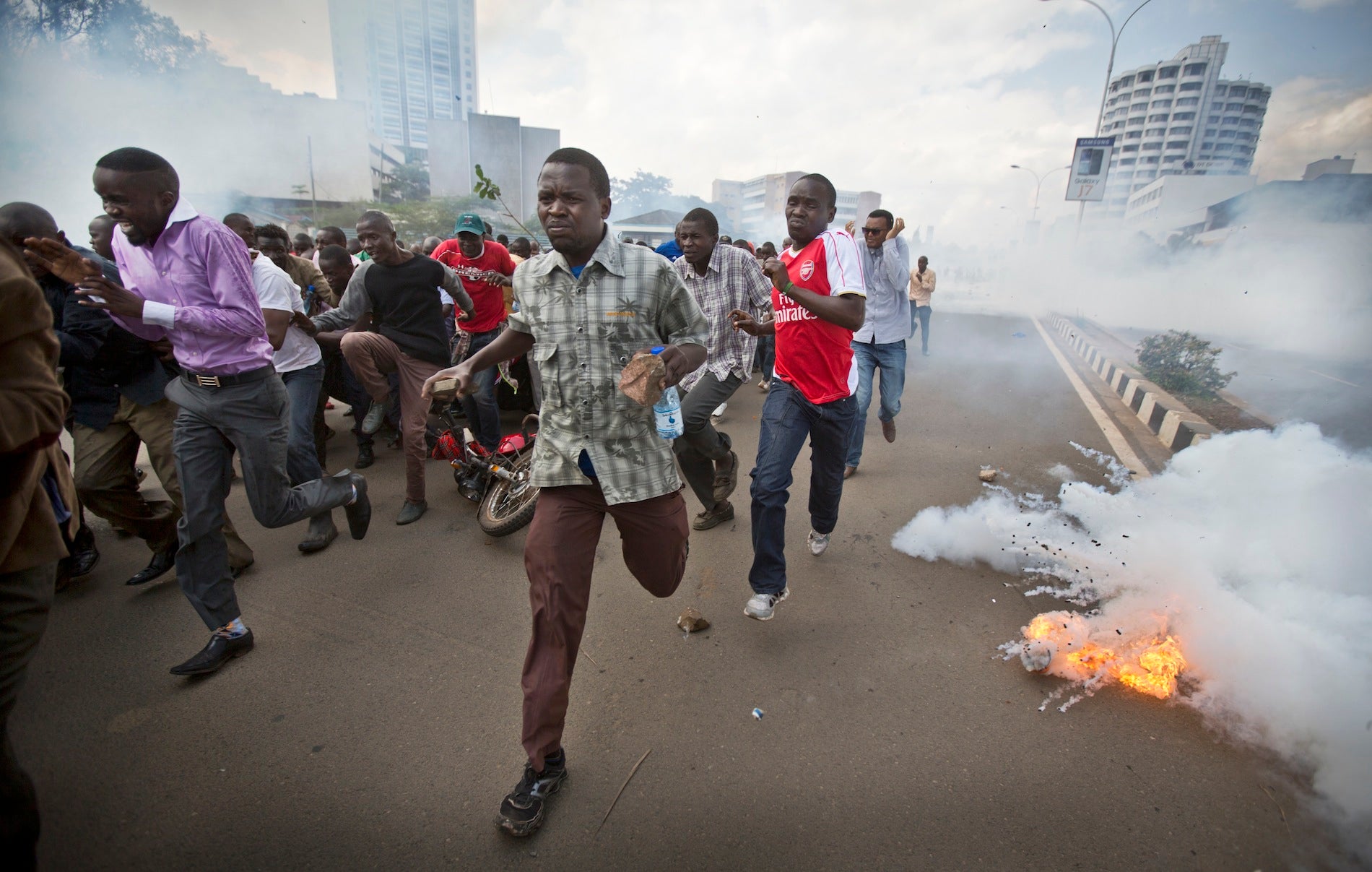Elections are historically bad for Kenya’s economy—next year will be no different
Kenya’s biggest economic hurdle right now is its upcoming election. According to a new report (pdf) from the parliament’s budget office released today (May 19th), the general election in August is the “greatest challenge” to the national economy.


Kenya’s biggest economic hurdle right now is its upcoming election. According to a new report (pdf) from the parliament’s budget office released today (May 19th), the general election in August is the “greatest challenge” to the national economy.
Elections are always a time of uncertainty for Kenya. Since independence, the country has held ten elections and several of them have been marred by post-election violence, including the 2007 vote when more than 1,000 people were killed and over half a million displaced. On Monday, supporters of Kenya’s main opposition candidate, Raila Odinga, were tear-gassed and beaten by police during a weekly demonstration.
“The election mood currently being experienced as the country is gearing itself for the 2017 elections have dampened the investment mood of the country as most investors are practicing the wait-and-see approach,” the report says. Current president Uhuru Kenyatta is expected to seek re-election.
The report, by economists and analysts advising the budget office, says that investors are waiting to start new projects or put more money into existing ones. In 2017, the pace of growth should remain flat, at about 5.6%, last year’s rate of expansion. (Officials had previously given an optimistic projection of 6.0%.)
Elections have been bad for the Kenyan economy in the past. The economy has slowed or remained stagnant through three of the five multi-party elections held in Kenya. The economy grew by only 0.2% in 1992, the year of Kenya’s first multi-party election, and only expanded by 0.5% in the 1997 and 2002 elections. (Economic growth also slowed in two of five single-party elections between the late 1960s and the late 1980s.)
There’s some hope that the impact may not be as great this time. During the last election year, 2013, the Kenyan economy actually expanded, a trend reversal that analysts credited to optimism over electoral and governance reforms under a new constitution instituted in 2010.